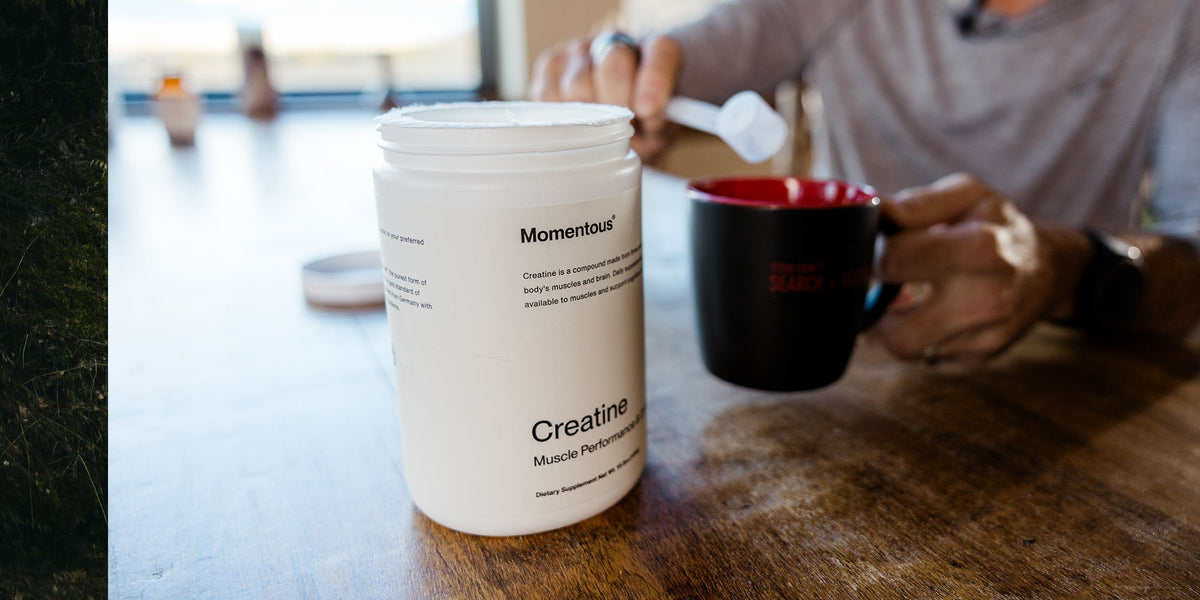
Why Creapure® Is Worth the Extra Cost
|
|
You’ve probably found yourself staring at two containers of creatine with a significant price difference between them. The more expensive one proudly displays Creapure® on its label. But is it really worth paying more when both products claim to be creatine?
It’s a valid question, and a common one. Many fitness enthusiasts assume all creatine is created equal, but the truth is far more nuanced. Behind the price tag are vast differences in manufacturing quality, purity levels, and contamination risks that can affect everything from efficacy to long-term safety.
We get it—when you're already investing in high-quality protein, pre-workouts, and recovery stacks, every dollar matters. So let’s break down exactly what you're paying for with Creapure and whether it earns its reputation as the gold standard of creatine monohydrate.
Creapure is a branded form of creatine monohydrate manufactured exclusively by AlzChem Trostberg GmbH in Germany. It’s not a different type of creatine molecule—it’s creatine monohydrate—but it’s created under extremely controlled conditions with unmatched attention to purity and quality.
AlzChem has specialized in creatine production for over two decades and operates under strict German and European manufacturing standards. The result? A creatine supplement that consistently delivers on what the label promises—without harmful impurities or contaminants.
Here’s how Creapure stands out from typical generic creatine brands:
Purity >99.9%: Creapure undergoes extensive HPLC (high-performance liquid chromatography) testing to ensure it contains virtually no contaminants like creatinine, dicyandiamide (DCD), or dihydrotriazine (DHT), which are often present in lower-grade creatine.
Patented Production: AlzChem uses a proprietary synthesis process that maintains tight control over temperature, humidity, and reaction stages to minimize byproduct formation.
Third-Party Tested: Creapure is regularly tested by independent labs and meets the standards of NSF Certified for Sport® and Informed Sport.
Manufactured in Germany: Adherence to pharmaceutical-level GMPs (Good Manufacturing Practices) means a cleaner, safer, more consistent final product.
Vegan and Allergen-Free: No animal-derived materials are used, and it's free of gluten, soy, and common allergens.
In contrast, generic creatine can vary widely in quality depending on the raw material source and manufacturing process—often from regions with lax regulatory oversight.
DCD and DHT are unwanted chemical byproducts of creatine synthesis. High levels of either can indicate low-quality manufacturing and may carry unknown long-term risk.
Creapure delivers clean, reliable, and ultra-pure creatine–without contaminants that don’t belong in your body.
At first glance, it may seem like you're paying a premium for a label. Let’s break it down:
| Product | Price | Servings | Price per Serving |
|---|---|---|---|
| Generic Creatine | $24.99 | 100 | $0.25 |
| Creapure (Momentous) | $39.95 | 90 | $0.44 |
That’s a $0.19 difference per serving—roughly $5–$6 more per month if you’re taking a daily dose of 5 grams.
But here’s what that premium gets you:
Consistency in absorption and effectiveness.
Avoidance of contaminants that may cause GI distress or compromise health.
Transparency in sourcing and dosing.
Higher purity also means more effective dosing. With generic creatine, you may be ingesting unknown fillers or impurities that reduce net creatine content—meaning you might need more powder to get the same benefit. Over time, that efficiency gap could actually reduce the cost difference in a meaningful way.
And let’s not forget: if a supplement isn’t third-party tested, there’s no guarantee that what’s on the label is in the scoop. You could be paying for 5 grams and getting 3.
As demand for Creapure has increased, so have knockoffs. Fortunately, AlzChem protects its brand with traceable authenticity markers.
Here’s how to identify genuine Creapure creatine:
Look for the Creapure logo on the front or side of the packaging.
Check for third-party certifications (e.g., NSF, Informed Sport).
Confirm sourcing details on the product label or website (Creapure will always state “Made in Germany”).
Buy from trusted brands like Momentous that explicitly state Creapure usage and maintain rigorous quality standards.
Counterfeit or misleading products may claim to contain Creapure without proper licensing or transparency. When in doubt, purchase directly from the brand’s official site or reputable retailers.
Creatine monohydrate is the most researched and effective form of creatine. It supports:
ATP regeneration during high-intensity activities
Increased muscle strength and lean mass
Enhanced cognitive performance under stress
Faster recovery between sets and sessions
But to experience these benefits reliably, the creatine must be bioavailable, stable, and free from interfering compounds. That’s where Creapure shines.
Impurities like creatinine and DCD can degrade efficacy, cause bloating, and potentially burden kidney function. With Creapure’s pharmaceutical-grade processing, you're getting only the active compound; nothing more, nothing less.
Absolutely, especially if you’re serious about maximizing your supplement stack’s safety and performance.
Paying a little more for Creapure means:
Confidence in purity and quality
Scientifically validated performance
Transparent labeling and ethical manufacturing
Trusted sourcing from a single, regulated facility in Germany
When viewed in the context of overall fitness investment—gym memberships, coaching, food, and other supplements—the marginal cost of upgrading to Creapure is minimal. Yet the peace of mind and performance benefits are far from minor.